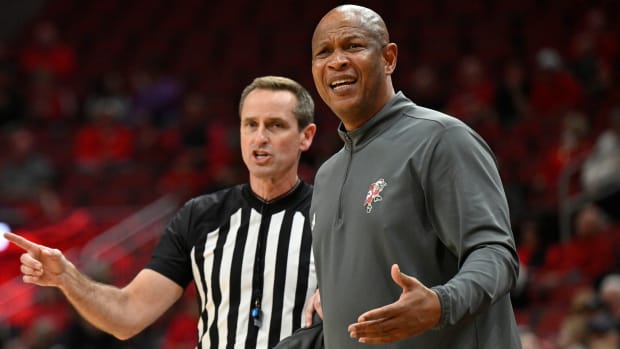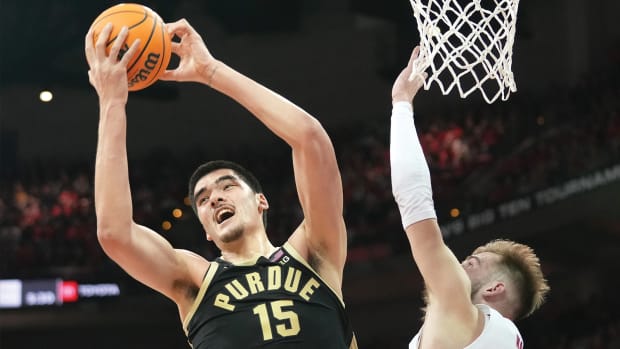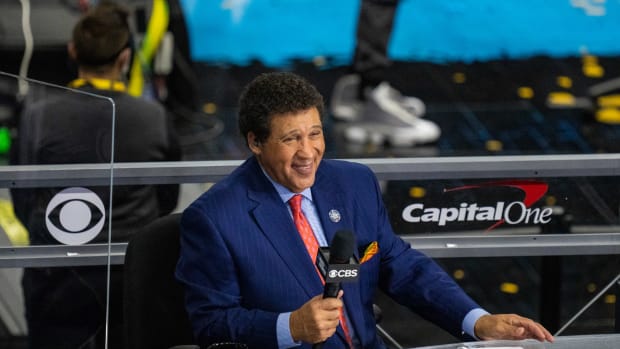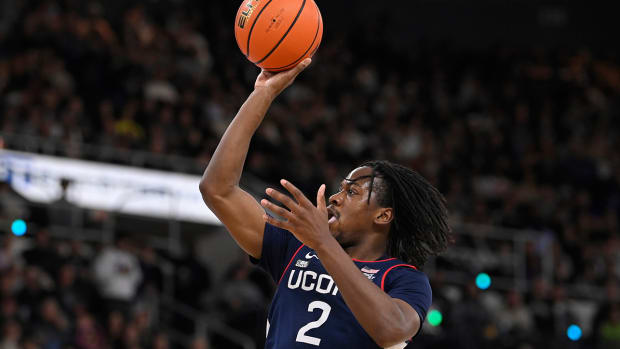Bipartisan Bill in Congress Seeks Overhaul of NCAA Infractions Process
For years now, college coaches, athletes and administrators have skewered the NCAA for an infractions process they say is unfair, dawdling and lacking transparency.
Turns out, at least two U.S. senators feel the same.
This week, senators Marsha Blackburn (R., Tenn.) and Cory Booker (D., N.J.) will introduce a bipartisan bill, the NCAA Accountability Act of 2021, that establishes strict requirements of the long-maligned NCAA infractions process, overhauling the operation by involving the Department of Justice and the U.S. attorney general.
The 10-page bill, obtained by Sports Illustrated and scheduled for release later Tuesday, is an attempt to streamline, shorten and bring greater equity to an NCAA investigative arm that has drawn harsh criticism from virtually every corner of college athletics. It has now caught the ire of high-ranking congressional leaders at a time when the college sports industry has faced its most extreme scrutiny. Just in the last two years, lawmakers have held more than a half dozen hearings over what they deem to be injustices within the industry. In fact, four Democratic Congress members are set to hold a virtual summit Wednesday about what they call “gross inequities” in college sports.
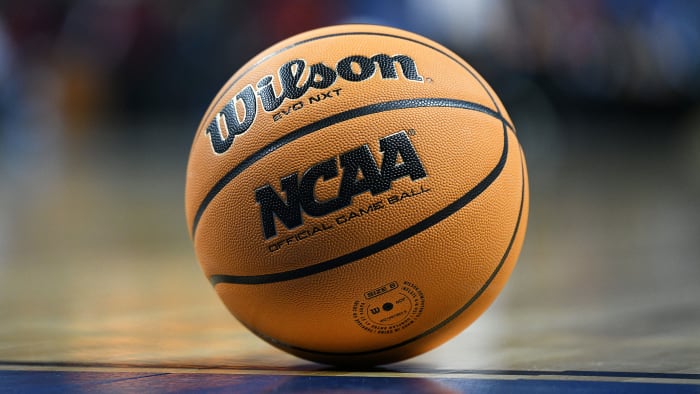
Several NCAA investigations into basketball programs have been going on for extended periods.
William Howard/USA TODAY Sports
The NCAA Accountability Act of 2021 touches on an oft-criticized process: the NCAA’s enforcement of violations through sometimes years-long investigations. The bill creates a set of deadlines to facilitate quicker investigations, shortens the statute of limitations on violations and establishes a new appeals process:
• The bill requires NCAA inquiries to be completed within eight months of a school receiving a notice that an investigation has opened.
• The NCAA, the bill says, cannot investigate violations that were alleged to have happened more than two years before the notice of investigation was sent to a school. The current statute of limitations is four years.
• The bill would prohibit the NCAA from using “confidential sources” as evidence for a decision.
• And a school can appeal punishments by using a three-arbiter panel, different from the NCAA’s current appeals committee.
The proposal also requires the NCAA to submit an annual report of investigations to the U.S. attorney general and each state’s attorney general while also charging the Department of Justice to ensure the governing body of college sports follows the bill’s statutes. Violations will be dealt with severely. The bill authorizes the Department of Justice to fine the NCAA as much as $15 million and to order the removal of any member of the NCAA’s highest governing body, its Board of Governors.
The bill’s introduction comes at a revolutionary time in college athletics. An athletes’ rights movement has generated sweeping changes to decades-old NCAA policies governing athlete compensation (NIL) and transfer movement. Certain entities, in both the courts and with the National Labor Relations Board, are fighting for college athletes to be deemed employees, something that many experts say should be considered a serious possibility.
The NCAA’s own member schools are examining the organization’s governance structure in what it is calling a “transformation process,” much of it spawned by the money-making, lavish-spending giant of football lording over a higher education model that seems destined for implosion.
But nothing has been more universally chided than the NCAA enforcement arm. Last May, even NCAA president Mark Emmert said that investigations into basketball programs tied to the 2017 FBI probe were “taking too bloody long.”
It was an indictment of the 2018 Condoleezza Rice–led committee’s creation of a second route for investigations, the Independent Accountability Resolution Process (IARP). Earlier this year, the NCAA Board of Governors opted to stop referring cases to the IARP in hopes that the group could clear its current backlog of five unresolved cases. Although there are hopes that most or all of those major infractions cases can be cleared in ’22, dissatisfaction with the process is virtually unanimous across the breadth of involved parties—schools, coaches, the NCAA, lawyers, etc.
The IARP concept has been such a disappointment that sources say there is a real chance it is drastically downsized or scrapped altogether. “[The IARP] was an experiment. And you never want to experiment with the biggest cases of the modern era,” one source told SI.
The NCAA Accountability Act of 2021 is the latest of a wave of legislation introduced on Capitol Hill as lawmakers examine the inner workings of what’s become, because of football, a billion-dollar industry. However, many bills fall on either side of the aisle, missing the all-important bipartisan support.
The enforcement bill has two outspoken and high profile U.S. senators, one a Black Democrat man from the Northeast and the other a white Republican woman from the Deep South, whose political views normally differ greatly. Like many in Congress, they have found common ground on one subject: their disdain for the NCAA.
Blackburn has especially been outspoken about the inequity in NCAA investigations, a hot topic in her own state. The Tennessee football program is under investigation for alleged violations committed by the previous coaching staff. Across the state, the University of Memphis’s basketball program was recently sent a notice of allegations that included major rules violations. A similar bill was filed last year on the House side, triggered by the investigation into Memphis’s program
“The NCAA has a well-established history of back room deliberations that produce unfair punishments for athletes, coaches, and universities,” Blackburn said in a statement to SI. “With the emergence of new name, image, and likeness rules, it is more important than ever to address the systematic failures that have eroded league fairness. The NCAA Accountability Act will establish much-needed due process and shine a light on unfair treatment from NCAA leadership.”
Memphis is one of five remaining unresolved IARP cases, four stemming from the 2017 FBI investigation of corruption in the sport: Kansas, Louisville, Arizona and LSU. Notices of allegations have been delivered in all four cases, and hearings have been set for at least Kansas and Louisville for this spring.
Louisville, Arizona and LSU have all dismissed the head coaches of the programs at the times of the alleged violations, although on markedly different timelines. Louisville fired Rick Pitino immediately; Arizona parted ways with Sean Miller in spring 2021; and LSU just terminated Will Wade earlier this month. Kansas, on the other hand, has given Bill Self a “lifetime contract.”
Pat Forde contributed to this report.
More College Coverage:
• Civil Rights Complaint Filed Against Athlete Cap
• Everyone Deserves Blame As CFP Rejects Expansion
• Gundy Has Heard Big 12 Could Expand to 14

